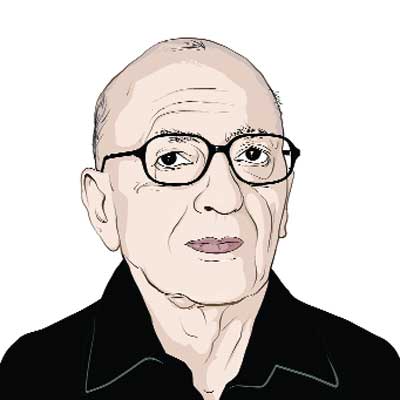Opinion A hostile mood in Parliament
The crowds that had gone delirious while welcoming her rise to power were now demonstrating against her.
Back home from the tumultuous AICC session at Jaipur,Indira Gandhi found to her dismay that the mood in Parliament was even more hostile to her than at the Congress conclave in the Pink City. The main reason was the steadily worsening food crisis and the concomitant escalation of distress and discontent. The crowds that had gone delirious while welcoming her rise to power were now demonstrating against her. Two other factors aggravated this grim problem.
The first of these was Indiras inability,since the day she became information and broadcasting minister in Lal Bahadur Shastris cabinet,to establish any kind of rapport with Parliament,let alone getting a hold on it. She was shy,inarticulate and apparently unable to think on her feet. She had been making political speeches since her childhood,and after Independence had been an important Congress leader,with a seat,elective or nominated,on all its top committees. She had also served as Congress president for a year during which she had virtually forced her father,despite his qualms,to sack the first Communist state government to come to power in this country in Kerala in 1957.
However,the trouble was that she had never before been a member of any legislature or held any government office. As I&B minister she used to leave it to her deputy,Nandini Satpathy,to answer parliamentary questions,but as prime minister,she obviously could not delegate or outsource her responsibilities. That is where the other factor operating against her came in.
In a series of by-elections during Jawaharlal Nehrus last years,especially in 1963,several habitual Nehru-baiters who had previously been out of Parliament either completely or for a very long period,returned to the Lok Sabha. They relished heckling and mocking his hapless daughter. Few showed her the consideration that the opposition in most countries usually does to newly elected leaders in the initial days. The most notable of her tormentors was the socialist leader Ram Manohar Lohia,a powerful orator who had been a lifelong crusader against Nehru and his family. It was he who gave her the nickname goongi gudiya (the mute doll). His cohorts used much worse epithets,often calling her akaal chandika or the witch that ushers in famines.
Moreover,the Congress party in Parliament was vertically divided between her supporters and those of Morarji Desai who had,after all,secured a third of the partys vote in the contest for leadership. Even K. Kamaraj and the Syndicate had started distancing themselves from her. Consequently,the partys defence of her was,at best,half-hearted. In the parliamentary executive that met regularly in those days,clashes between the two factions were frequent.
Nor were things improved by the habit of the MPs and ministers in her inner circle to throw their weight around. She had had a kitchen cabinet even in the days when she used to complain legitimately that Shastri was treating her with scant consideration. After her ascension to the highest office,the composition of the kitchen cabinet changed and its arrogance soared.
Indira Gandhi was,of course,painfully aware that food was her Achilles Heel and that she must do something about it quickly. Famine conditions were expanding and the peoples patience was running out. At the same time,hordes of foreign journalists were arriving and asking to be taken to places where the hungry were dropping dead. But she couldnt have a plan of action without consulting the chief ministers,and before that could happen the Union budget had to be presented,for which the date has always been the last day of February.
The budget,when it came,proved to be a disaster. All of Indiras adversaries,divided among themselves on numerous counts,united to denounce her. They protested that ever since the beginning of the planning process in India,Indiras budget was the first to lower the annual plan outlay from that provided in the previous year. Ironically,some of her trenchant critics were those who,all through Shastris time and not without some encouragement from him,were agitating for a plan holiday because the earlier plans had put a heavy burden on the people.
If the budget was a disaster,the chief ministers conference,when held at last,was a catastrophe,because even though all of them owed allegiance to the Congress,they absolutely refused to agree on a food policy. It was at this moment of truth that Indira realised that there was no option but to ask the US on which Indian dependence for the rather soft imports of wheat under Americas Public Law 480 was already great to enhance these supplies. The PL 480 provided that India would pay for the wheat in rupees,not dollars,and certainly not immediately.
Readily,she also made up her mind that the best way to negotiate this was for her to go to Washington. In this resolve she was greatly encouraged by her two close advisors at that time,C. Subramaniam,whose fate it was to be minister for food and agriculture,and Asoka Mehta,a leader of one of the socialist parties,who had joined the Congress and was at that time deputy chairman of the Planning Commission. Both of them were publicly advocating that India should throw its lot with America. Mehta,indeed,earned some opprobrium by inviting the US
to do backseat driving as far as India was concerned,and informing it that Mother Indias womb is open,whatever that was supposed to mean.
The US was happy that she should have chosen it as the first country to visit as prime minister,and duly prepared for a grand welcome to her. Since I had decided to land in Washington at least a week before her,I went to see her to get a perspective on the undoubtedly crucial visit. She smiled,and said: Dont publish this but keep it in mind that my objective is to secure food and financial aid without ever appearing to be asking for it.
The writer is a Delhi-based political commentator


